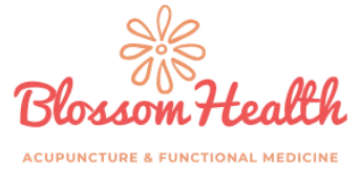The symptoms of IBS include gas, bloating, constipation, diarrhea, alternating constipation and diarrhea, and abdominal pain. They can range from mildly annoying to completely debilitating. You may find that you need to be near a bathroom, which can be very disruptive to your life.
IBS is also one of the top causes of missed work in the US.
Why it is so challenging to heal from IBS?
IBS is still very much misunderstood. A persistent conventional mindset exists which maintains that if there are no structural changes present in the intestine, such inflammation or lesions, there is no solution for the problem:
“IBS treatment is purely symptomatic, that is to say medication helps the symptoms, but there is no specific treatment that will cure it once and for all.”
“IBS is not a disease process like Crohn’s, it is simply that the large bowel does not function properly and goes into spasm, which causes the pain and irregular bowel actions that is so often a feature.”
http://www.netdoctor.co.uk/ask-the-expert/digestive-health/a4827/could-ibs-develop-into-crohn8217s-disease/
In other words, IBS is a collection of symptoms and not a disease process. Therefore, only the symptoms can be managed and there is no specific treatment or “cure” that will eliminate IBS for good.
Once IBD or other diseases are ruled out and you are diagnosed with IBS, your doctor will most likely treat your symptoms with the following drugs:
• Anticholinergic or antispasmodic medications
• Anti-diarrheal medications, which can make bloating worse
• Drugs that slow intestinal motility
• Anti-depressants
Unfortunately, none of these solutions addresses the underlying issue, or root cause of your IBS. Their purpose is solely for managing symptoms, and for many, they either don’t work or produce undesirable side effects. This can be frustrating and depressing.
The question which is overlooked, avoided, or simply not conceived of is: “WHY is the large intestine going into spasm in the first place?”
In FM, we approach the treatment of IBS much differently. First of all, we acknowledge that function, or “how stuff works,” is just as important as structure.
We also don’t view IBS as a single definable condition. Instead, it’s a label for a broad spectrum of digestive issues. And each case must be approached individually. This requires intake, testing, research, deductive reasoning, and a custom diagnosis and treatment plan just for you.
Why?
Your digestive system is complex. Here’s just one example: If your stomach isn’t producing enough acid, its ability to digest proteins is diminished. This “upstream” problem results in “downstream” issues in your digestive tract, in the form of gut dysbiosis, intestinal permeability, or other conditions. And these dysfunctions can result in the spasms that are causing you so much pain, misery, and inconvenience.
This is only one example of the complexity and interconnectedness of your digestive system and every other system in your body.
FM and TCM have a high success rate when it comes to treating chronic conditions like IBS. Often, the treatment protocols of both IBD and IBS overlap.
Root causes we address in our clinic:
• Low stomach acid (very common)
• SIBO (small intestine bacterial overgrowth)
• Food sensitivities
• Poor overall gut health resulting from the typical American lifestyle and diet (gluten, sugar)
• Use of certain medications, including antibiotics and steroids
• Yeast overgrowth
• Parasites
These root causes have been linked to IBS via hundreds of studies, with more new studies arriving on the scene weekly.
How I can help you heal
• Specific and focused laboratory testing to find the actual underlying root cause of your symptoms. This might include:
• Food sensitivity testing
• Stool tests: microbiome diversity, parasites
• SIBO testing (breath test)
• Leaky gut and intestinal permeability testing
• Dietary advice and guidance. In more severe cases, implementation and monitoring of specific dietary protocols such as a low FODMAP diet or a classic elimination diet. Both of these should be done under the supervision of a health professional with experience in treating digestive conditions such as SIBO and IBS.
• Specific foods and supplements such as high-quality probiotics, HCL and digestive enzymes. (for gut healing: 4R program, bone broth, L-Glutamine, herbal formulas)
• Focusing on the mind/body connection and stress relief. It’s important to note that it’s not a sign of weakness or an indication that you are “crazy” when your gut is affected by your state of mind (or vice versa) and the amount of stress you are going through. The connection between the gut and the brain is well documented, and even has a name: the “gut-brain axis.”
The road to healing can be challenging. It will take some work, and there are no quick fixes that will address IBS permanently.
